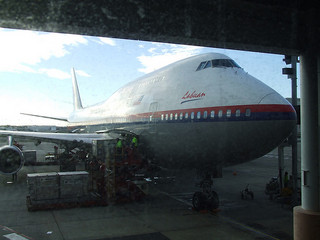 Asia-Pacific airlines continue to feel the impact of a soft air cargo market, according to August traffic figures released by the Association of Asia Pacific Airlines (AAPA).
Asia-Pacific airlines continue to feel the impact of a soft air cargo market, according to August traffic figures released by the Association of Asia Pacific Airlines (AAPA).
Sluggish global trading conditions continued to mute international air cargo demand, which was just 0.3 percent higher in August compared to the same month last year.
Offered freight capacity increased by 2.8 percent, leading to a 1.6 percentage point fall in the average international freight load factor to 63.1 percent for the month.
Andrew Herdman, AAPA director general, said that for Asia-Pacific airlines, airfreight markets have been persistently soft, with a 1.7 percent fall in demand during the first eight months of the year, “as a result of lackluster trade growth and relatively weak markets for electronic products and other high value goods normally shipped by air.”
He noted some signs that the slump in air cargo experienced over the past couple of years may be bottoming out in terms of volume, but that surplus cargo capacity will continue to exert downward pressure on rates.
“Overall, Asian airlines are focusing on further growth opportunities, but still face very challenging business conditions,” he added.
Meanwhile, Singapore Changi Airport said it processed 151,000 tonnes of cargo in August, a slight decline of 0.5 percent year-on-year. On a rolling year basis, airfreight movements were stable at 1.85 million tonnes for the 12-month period.
Photo: Simon_sees




